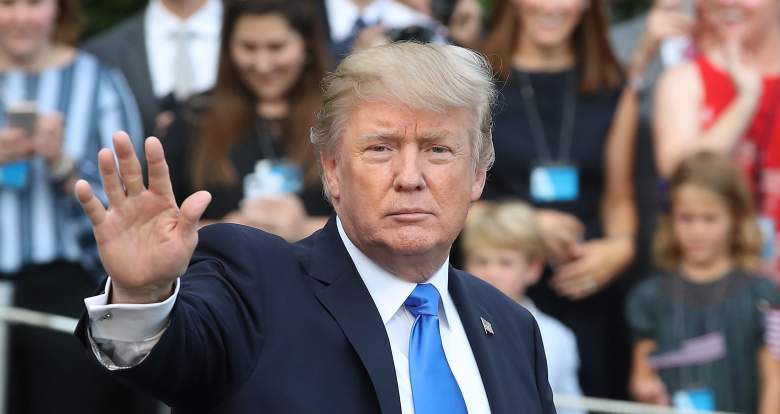
Getty U.S. President Donald Trump waves as he walks with his wife Melania to Marine One while departing from the White House on July 12, 2017 in Washington, DC. The Trumps are traveling to France.
President Donald Trump has inquired about his pardon authority as the Russian investigation by Special Prosecutor Robert Mueller may have expanded to include his finances, The Washington Post is reporting.
The Post started tongues wagging about Trump pardons when it reported in the same story that the president “has asked his advisers about his power to pardon aides, family members and even himself in connection with the probe.” The newspaper cited a single anonymous source for this claim. Another source told the newspaper, though, that the president was just seeking to thoroughly understand his pardon authority, and a Trump attorney branded the report of Trump inquiring about a self or familial pardon false and nonsense.
“Pardons are not being discussed and are not on the table,” Jay Sekulow, a member of Trump’s legal team, insisted to ABC News.
Were Trump to ever consider such a thing, though, is this even possible? Could Donald Trump pardon himself and his children?
Here’s what you need to know:
1. It’s Not Clear Whether the President Could Pardon Himself
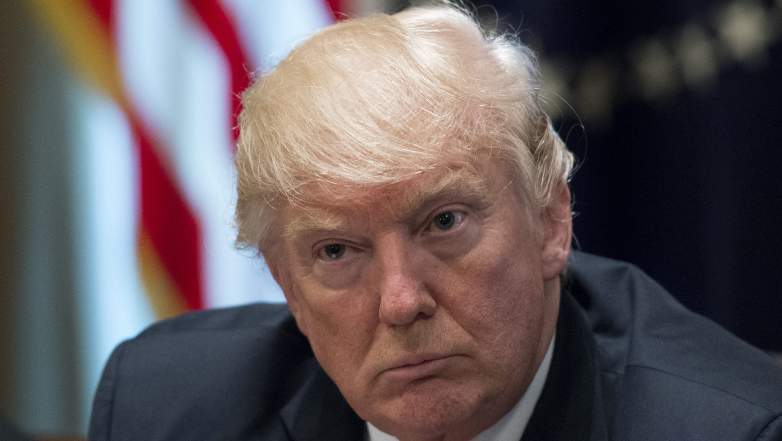
CNN turned to Brian C. Kalt, a Michigan State University law professor and author, for an answer to the most controversial question: Could the president pardon himself?
Kalt told the cable news network that the question is not clear and would likely be determined by the U.S. Supreme Court. Asked to boil down the chances that a self pardon would legally stand to a percentage, Kalt said to CNN: “It is so hard to predict just what the Supreme Court would do that I can’t say with any precision. I’ll just say that I think it’s less than 50%, but not close to 0%.”
Kalt also spoke to The Washington Post on the same question. The newspaper said he’s a constitutional law expert. It “is a fiercely debated but unresolved legal question,” he told The Post. No president has ever attempted to pardon himself (pardon authority can be used before a crime is charged).
The Post reported that experts are divided on the question, with some arguing a presidential self pardon is possible because the Constitution doesn’t “explicitly” prevent it.
The U.S. Justice Department’s Office of Legal Counsel did opine in 1974 that Richard Nixon could not pardon himself. “Under the fundamental rule that no one may be a judge in his own case, the President cannot pardon himself,” the document says. However, the document hedges the conclusion by saying later that it “would seem” that the question “should be answered in the negative.”
The document does raise one tangled possibility: A president could declare himself temporarily unable to perform the duties of the office, meaning the vice president would take over the presidency and could pardon the president. The president could then resume the duties of the office. This would take agreement by the vice president, though, subjecting him to the firestorm of controversy that would engulf them both.
However, writing on Foreign Policy, Kalt says, “No president has ever tried to pardon himself, let alone been prosecuted after trying to pardon himself, so no court has had a chance to rule on the validity of self-pardons. Nixon considered pardoning himself just before he resigned. His lawyer advised him that he had the power, but Nixon decided against it…If a court ever did consider the issue, the decision could go either way because there are reasonable arguments on both sides.”
Kalt argues that the president’s case for the self pardon would be simpler to make since the Constitution does not expressly forbade it, whereas those on the other side would need to make a more complicated “textual” argument. “The word ‘pardon’ means something inherently bilateral, something that a sovereign bestows upon a subject,” Kalt wrote.
Newsweek notes, though, that “provided there are still active leads and targets, the special counsel mandate would continue” even with a presidential self pardon.
2. Presidential Pardon Authority Does Have Some Limitations
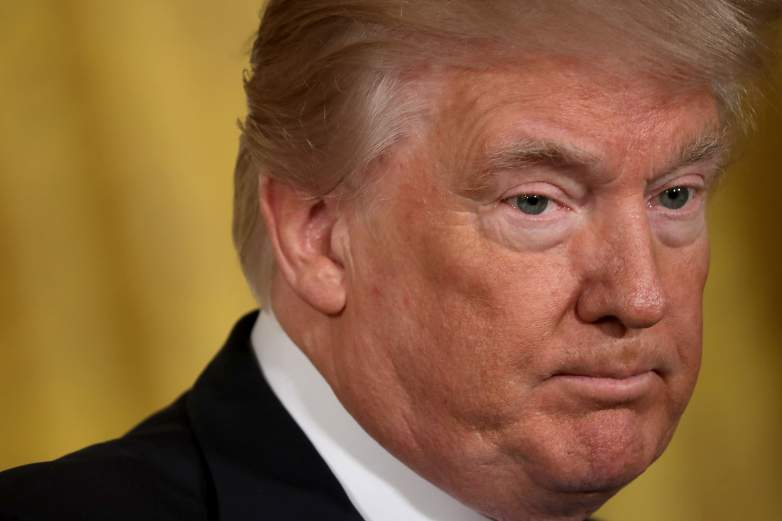
GettyPresident Trump on June 23.
Even if Trump wanted to and could pardon himself, he couldn’t do so for state crimes or to stop impeachment.
Article II, Section 2, of the Constitution, provides the president with his pardon authority. It’s described in the Constitution as the power to “grant Reprieves and Pardons for Offences against the United States, except in Cases of Impeachment.”
According to The Post, this language means that the president can’t use pardon authority for state crimes or to stop impeachment.
“The power to pardon applies only to offenses against the laws of the jurisdiction of which the pardoning official is the chief executive. Thus the president may only pardon for violations of federal law, and governors may only pardon for violations of the laws of their states,” the legal dictionary reports.
3. The Case Seems Clearer Regarding the Children Because the President Has Broad Pardon Authority
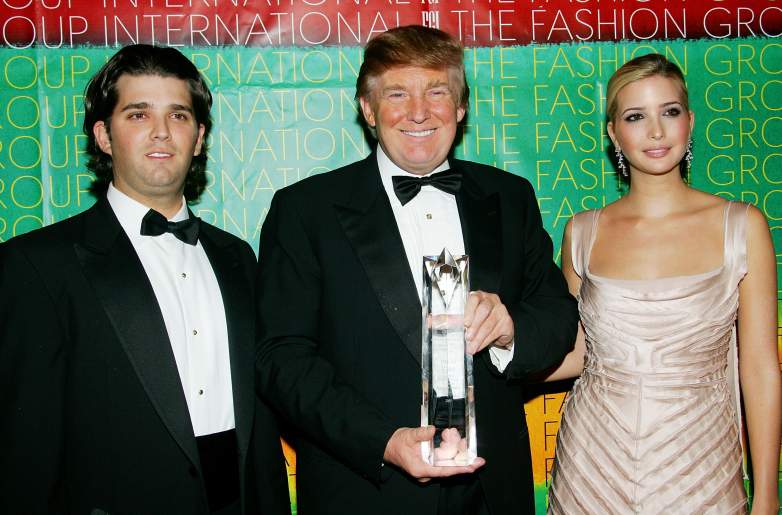
GettyDonald Trump Jr, father Donald Trump and sister Ivanka Trump in 2005.
Were he so inclined, the president would probably have an easier time pardoning his children than himself (legally, anyway. The political fallout would be another question.)
“The power to grant a pardon derives from the English system in which the king had, as one of his royal prerogatives, the right to forgive virtually all forms of crimes against the crown,” reports the legal dictionary, which added of presidential pardon authority: “…Throughout U.S. history the courts have interpreted this clause to give the president virtually unlimited power to issue pardons to individuals or groups and to impose conditions on the forgiveness.”
Newsweek notes that “a president can prospectively pardon individuals for crimes that have occurred but have not been charged.”
Asked on ABC News whether the president would rule out giving pardons to people tied to the Russian investigation, such as former National Security Adviser Michael Flynn, former campaign chairman Paul Manafort, and “any others that are in this investigation,” Trump’s lawyer Jay Sekulow responded, “He can pardon individuals, of course, that’s because the founders of our country put that in the United States Constitution, the power to pardon” but said he had not had a conversation with Trump on the topic. However, on July 21, ABC News reported that Sekulow had said pardons were not on the table in the Russian probe.
4. Past Presidents Have Pardoned People With Links to Them
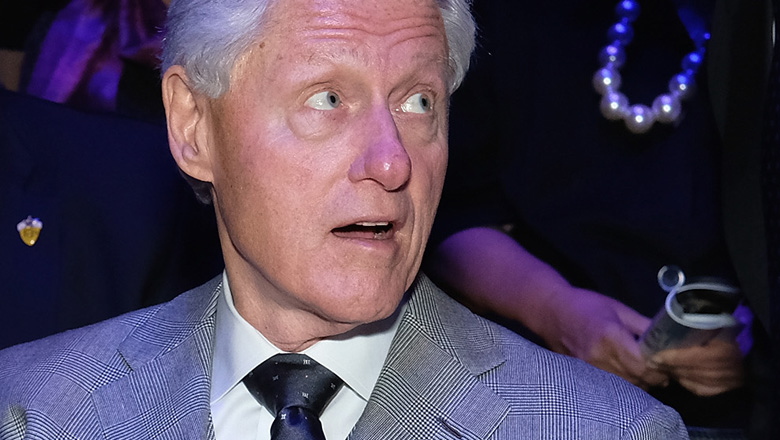
Bill Clinton attends The Nearness Of You Benefit Concert at Jazz at Lincoln Center on January 25, 2017 in New York City.
Although pardoning a relative would be novel, past presidents have pardoned people with whom they arguably had conflicts of interest.
President George H.W. Bush “pardoned six officials of the Ronald Reagan administration who were implicated in the Iran-Contra Affair,” reports the legal dictionary. Bush served as Reagan’s vice president, of course.
President Bill Clinton pardoned financier Marc Rich, whose ex-wife “made a $450,000 donation to Clinton’s presidential library foundation and more than $100,000 to Hillary Clinton’s Senate campaign,” according to USA Today.
George W. Bush commuted the sentence of Scooter Libby, who was chief of staff to his vice president, Dick Cheney.
And, of course, Gerald Ford pardoned Richard Nixon after serving as Nixon’s vice president.
Those are political ties, though, not familial ones.
5. Robert Mueller May Be Expanding His Probe to Include Trump’s Finances
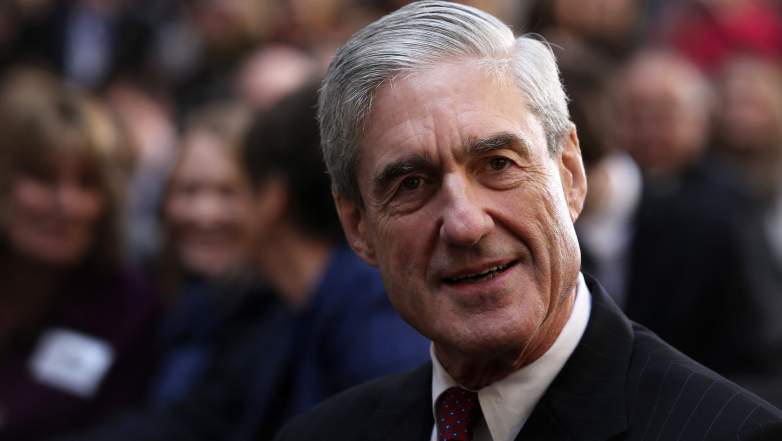
Robert S. Mueller III. (Getty)
Why would Trump’s children or son-in-law Jared Kushner theoretically be in legal jeopardy in the first place? Bloomberg reports that Special Prosecutor Robert Mueller is expanding his probe to investigate aspects of Trump’s finances. Trump’s children are involved in his businesses to varying degrees.
Citing an anonymous source, Bloomberg reported that Mueller “is examining a broad range of transactions involving Trump’s businesses as well as those of his associates.”
“FBI investigators and others are looking at Russian purchases of apartments in Trump buildings, Trump’s involvement in a controversial SoHo development in New York with Russian associates, the 2013 Miss Universe pageant in Moscow and Trump’s sale of a Florida mansion to a Russian oligarch in 2008,” according to Bloomberg.
Trump’s lawyer pushed back at the report, saying he was unaware of this contention and saying such an expansion of the probe would be beyond its scope, Bloomberg reported.
Politico reports that the Trump team has been increasing its public criticism of Mueller, with Trump telling The New York Times it would be a violation for Mueller to expand the probe to the president’s finances.
“The president also pushed the notion that some members of Mueller’s team, who have previously donated to Democratic campaigns, are ethically compromised. His surrogates have pushed similar talking points, while White House deputy press secretary Sarah Sanders reiterated Thursday (July 20) that Trump retains the right to remove Mueller,” reported Politico.